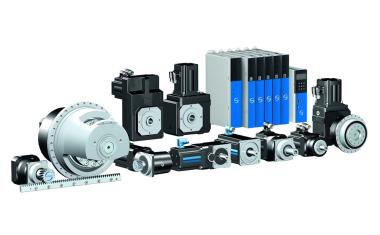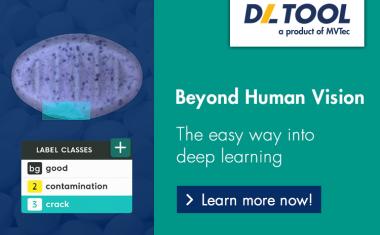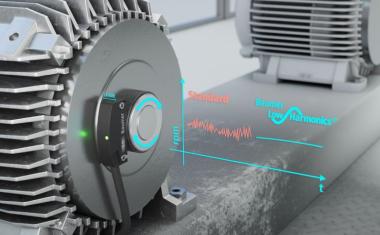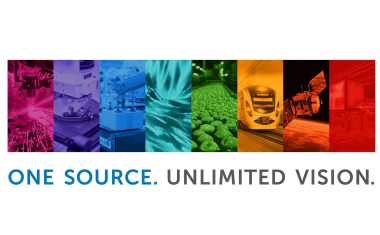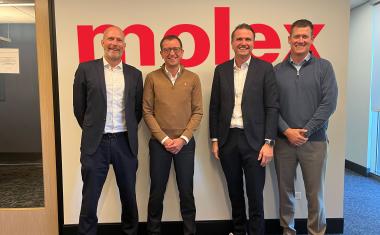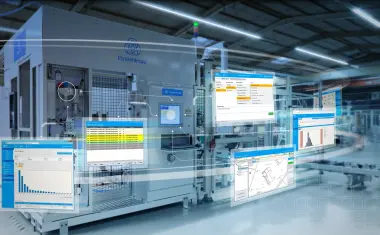Isra defies the crisis
Isra Vision AG, globally one of the top five suppliers for industrial image processing (Machine Vision) and world market leader for surface inspection systems, was able to stand its ground in times of crisis and despite fluctuations in the economy. According to the preliminary annual financial statement (which was audited but not certified) for the financial year 2008/2009 (September 30th), the operating cash flow has been improved by more than 150 percent or EUR 10 million to EUR 16.4 million. Due to strong cash flow, short-term bank liabilities declined by EUR 11.3 million. Overall, net debt improved by 15 percent to EUR 22.0 million. Interest expenses were reduced by more than one third to EUR 1.0 million. As in the previous financial year, Isra achieved a net profit margin (group profit to revenues) of 11 percent (10 percent based on total output). Due to the good profitability, Isra's equity strengthened by EUR 5.5 million to EUR 81.2 million. The equity ratio improved by six percentage points to 57% and thus provides a strong basis for future growth.
In the financial year 2008/2009, Isra was able to achieve revenues of EUR 58.2 million (previous year: EUR 68.3 million) and thus positively sets itself apart from competitors who partially suffered a massive slump. The EBIT reached EUR 9.3 million (previous year: EUR 12.9 million) and the EBT EUR 8.3 million (previous year: EUR 11.3 million). The EBIT margin of 16 percent and the EBT margin of 14 percent of revenues (based on total output: EBIT margin 14 percent and EBT margin 13 percent) thus lie within the target corridor communicated by the board. Considerable expenditures related to measures undertaken to reduce costs have a one-off character and are already considered in the 2008/2009 result. The group's net profit reached EUR 6.5 million (previous year: EUR 7.6 million). This results in an earnings-per-share of EUR 1.52 (previous year: EUR 1.76).
The good profit situation and the sustained reduction of receivables, due to a further intensified financial and receivables management, significantly contributed to the strong increase of the operating cash flow of EUR 10 million to EUR 16.4 million. After investments, dividend and interest payments, as well as the considerable reduction of bank liabilities, liquid funds declined by EUR 5.4 million to EUR 7.2 million. In the cash flow, if one would take out all positions related to acquisitions a real cash flow of EUR 6.4 million would remain which is of course a good success. Overall, short-term liabilities were reduced by EUR 16.2 million to EUR 18.9 million and long-term liabilities increased by EUR 2.8 million to EUR 41.8 million.
Isra is the global innovation and market leader in Surface Vision. In financial year 2008/2009, this position was further supported. The total output in this area reached EUR 52.9 million (previous year: EUR 58.3 million) and an EBIT of EUR 7.9 million (previous year: EUR 9.9 million). The EBIT margin was 15 percent (previous year: 17 percent). The division Industrial Automation achieved a total output of EUR 12.9 million (previous year: EUR 18.0 million). The EBIT declined to EUR 1.3 million (previous year: EUR 3.0 million). ISRA thus reached an EBIT margin of 10 percent (previous year: 17 percent) in this area.
The multi-segment strategy was the reason why Isra has not suffered significantly by the crisis. Isra is diversified via different industrial image processing technologies for different applications as well as throughout different industries and regions with different economical cycles. Isra serves a large number of customers globally, in general the Global Players of the particular industry. Apart from the broad strategic positioning, early measures taken to increase productivity and efficiency have ensured profitability. They reduced the cost base by more than EUR 4 million. Those savings increase efficiency and utilize internal synergies. The cost structure is getting more lean, nevertheless the reductions may not be extrapolated entirely for the projection of future income increases. With four internal strategic projects the company will open up further optimization potentials in regard of efficiency and production in the following two years.
With a further sales and innovation offensive in the financial year 2009/2010, Isra prepares to return to its course of long-term growth. Accordingly, management is planning to introduce more than 20 new solutions to customers within the next two years. The customers of Isra are mainly global market leaders of their industries and after a successful test they generally use Isra products and solutions in their production facilities at all of their international production sites. Further opportunities for expansion may be used by introducing products for upstream and downstream production stages to these customers. Isra is continually striving to increase its market share by offering newly or further developed technologies to its existing customers. Furthermore, the group aims to win new customers in the industries it serves already and to transfer its know-how to solutions for new industries. Positive trends are coming especially from the Asian market. In China, Isra will further extend its sales team.
Isra continues to focus on long-term growth. In terms of revenues, it is planning to surpass the benchmark of EUR 100 million within the next few years. One component of its growth strategy is external growth. Management is currently conducting promising talks with some targets so that a further acquisition is possible even in the first half of financial year 2009/2010. In November 2009, the group acquired a 24 percent minority interest in the Turkish company Vistek, a spin-off of the Sabanci University. The participation in the Istanbul Machine Vision specialist provides further growth opportunities for Isra due to a higher market penetration in Turkey and also within the whole Middle East region and Southwest Asia. With extended service and on-site support, Isra increases its customers' benefit in the region and is able to optimize its cost structure at the same time. Furthermore, through the additional application know-how Isra gains access to customers in new industries. According to experts, the growth dynamic will further accelerate in the Middle East and Southwest Asia region.
With an order backlog of more than EUR 30 million and with offers submitted to customers in the total value of several hundred million Euros, Isra will continue its path of profitable internal and external growth. Management is currently observing a slight stimulation of orders e.g. from the steel industry. These may indicate that the market is already beyond the recession's low-point and in a state of recovery. If the important industries pick up their investment activity and realize previously deferred projects, Isra can expect further growth in the second half of financial year 2009/2010. A detailed prognosis, however, is not yet possible due to the many elements of uncertainty. We expect the budget decisions of our customers in January/February. The signals received so far lead us to be cautiously optimistic. In the beginning of February, Isra will publish its forecast for the financial year 2009/2010.




